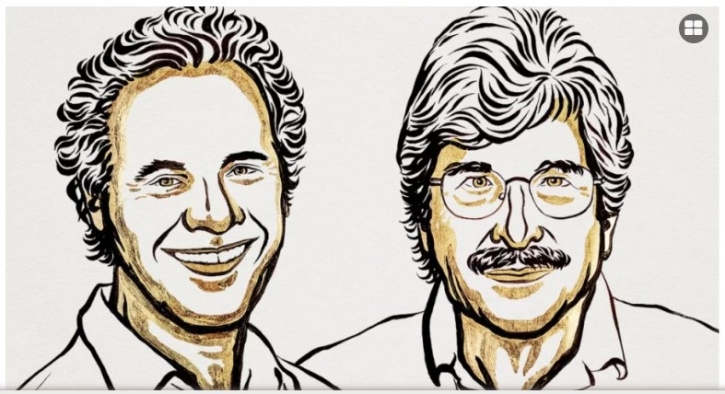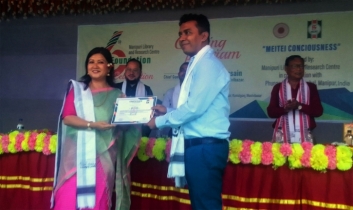
US duo Victor Ambros and Gary Ruvkun won the Nobel Prize in Medicine on Monday for their discovery of microRNA and its role in how genes are regulated, the Nobel jury said.
The jury said, “Their groundbreaking discovery revealed a completely new principle of gene regulation that turned out to be essential for multicellular organisms, including humans.”
If gene regulation goes awry, it can lead to serious diseases such as cancer, diabetes, or autoimmunity.
Collaborating but working separately, the pair conducted research on a 1 millimeter roundworm, C. elegans, to determine why cell mutations occurred and when.
Their groundbreaking findings--gene regulation, which allows each cell to select only relevant instructions--was published in two articles in 1993.
Ambros, 70, is a professor at the University of Massachusetts Medical School while Ruvkun, 72, is a professor at Harvard Medical School.
The pair will receive their prize, consisting of a diploma, a gold medal and a $1 million cheque, from King Carl XVI Gustaf at a formal ceremony in Stockholm on December 10, the anniversary of the 1896 death of scientist Alfred Nobel who created the prizes in his last will and testament.
Last year, the medicine prize went to Katalin Kariko and Drew Weissman for work on messenger RNA (mRNA) technology that paved the way for Covid-19 vaccines.
The Nobel season continues this week with the announcement of the winners of the physics prize on Tuesday and the chemistry prize on Wednesday.
They will be followed by the much-anticipated prizes for literature on Thursday and peace on Friday.
END/MA




































